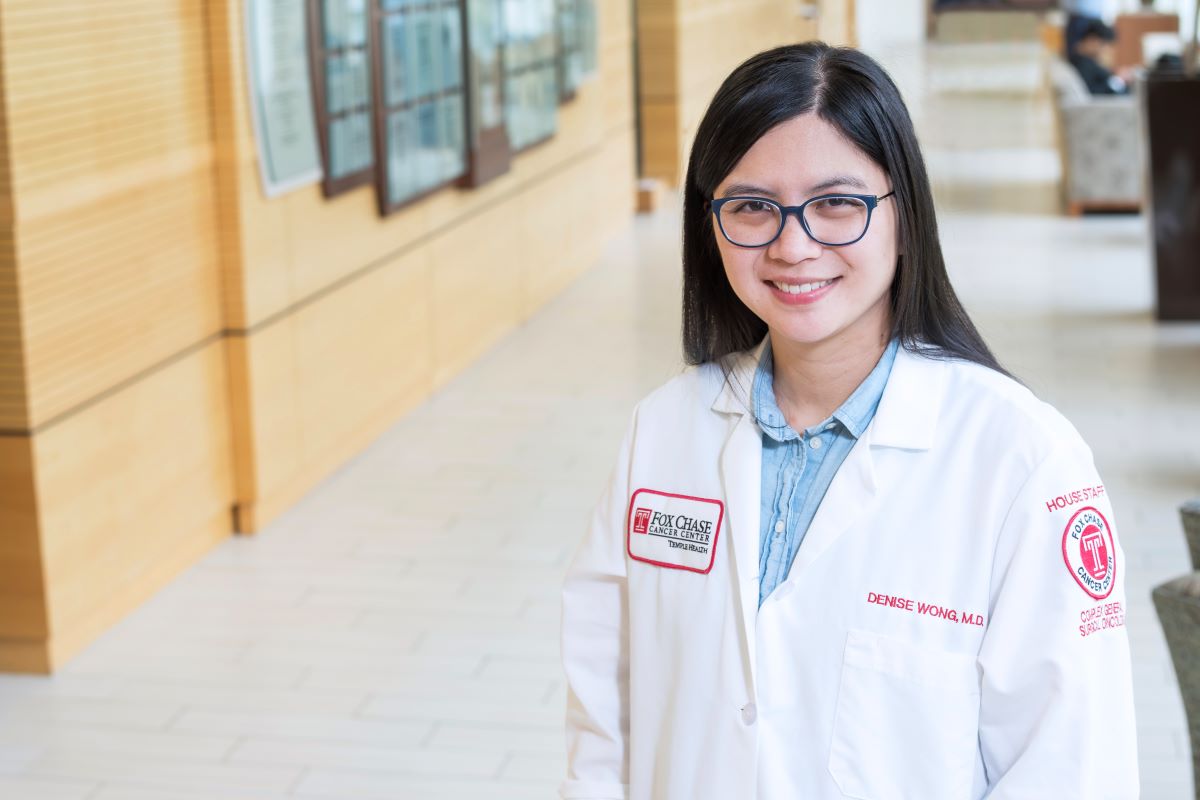
PHILADELPHIA (May 13, 2025) — Fragmented care — receiving medical treatment at more than one facility — has been associated with both positive and negative outcomes for cancer patients depending on a number of factors such as cancer type and treatment venue.
In a study recently published by researchers at Fox Chase Cancer Center, patients being treated for retroperitoneal sarcoma at multiple facilities experienced longer delays between diagnosis and treatment and traveled farther to receive treatment, but their overall survival rates were equivalent to patients receiving nonfragmented care.
This suggests that providers ought to adopt an individualized, patient-centered approach to care for retroperitoneal sarcoma patients, especially when making referrals.
“This study is a call to providers to be thoughtful about referring retroperitoneal sarcoma patients to an outside facility,” said Denise Wong, MD, a Complex General Surgical Oncology Fellow at Fox Chase and first author on the study.
“If we’re asking our patients to travel, it has a real-life, real-world effect on their care. Do they have the transportation and lodging they’ll need? How will we follow them across facilities? What happens if they need neoadjuvant treatment? These are all considerations we need to take into account.”
Retroperitoneal sarcoma is an extremely rare form of cancer, comprising less than 1% of cancers in adults. To be considered high-volume, cancer centers must perform more than 13 surgeries for this type of cancer each year, a statistic that has been associated with better outcomes. But patients have limited options because fewer than 10 high-volume centers for retroperitoneal sarcoma exist in the United States.
Led by senior author Anthony Villano, MD, FACS, Assistant Professor in the Department of Surgery at Fox Chase, Wong and fellow Fox Chase researchers decided to investigate whether fragmented care affects patient outcomes for retroperitoneal sarcoma. If fragmented care was associated with worse outcomes, that could suggest patients ought to try to stay at one facility for treatment. If fragmented care was associated with improved outcomes, this might be an indicator that spending the time and resources to travel to a high-volume center is more advisable.
The team analyzed National Cancer Database records for 4,976 patients who underwent surgery for retroperitoneal sarcoma between 2004 and 2020. They found that patients who received fragmented care traveled a greater average distance for treatment (36 versus 13 miles) and had a longer average time between diagnosis to treatment (43 days versus 16 days). However, the overall survival rates of patients who received fragmented care did not differ from the rates of patients who received care at a single institution.
“We are not saying, ‘Every patient can just stay at their community center, it’s fine.’ That’s not the message,” said Wong. “Our findings suggest that many considerations go into getting the best sarcoma care for a patient. ‘You have this rare cancer — you should definitely travel to this major sarcoma center,’ is not always what’s best for the patient. We have options, and we need to consider them.”
The study, “Impact of Fragmented Care on Retroperitoneal Sarcomas,” was published in The American Journal of Surgery.